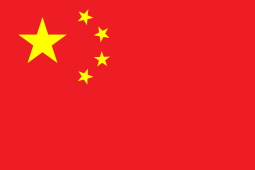China Telecom Train AI Model with 1 Trillion Parameters Using Homegrown Chips
China Telecom achieves a major AI milestone, training a 1 trillion-parameter model solely on domestically-produced chips, marking a step toward self-reliance in AI tech amidst U.S. trade restrictions.


China has taken another significant step toward AI autonomy with China Telecom, one of the country's largest state-owned telecommunications firms, successfully developing a cutting-edge AI model boasting 1 trillion parameters. This accomplishment represents a milestone for the nation, signaling the strengthening of its domestic AI capabilities and resilience in the face of foreign technology restrictions, particularly from the United States.
AI, Domestic Chips, and Self-Reliance
In a world where artificial intelligence (AI) advancements are shaping global technological power, AI models with vast numbers of parameters—like the one developed by China Telecom—are at the forefront of the race for superiority. Parameters are crucial in AI models because they are the "learned" variables that enable these models to function effectively, making them capable of understanding and processing large volumes of data, as well as performing complex tasks like natural language processing (NLP).
By achieving this with its own chips, China Telecom is underscoring China's pursuit of technological self-sufficiency. The 1 trillion-parameter AI model is a testament to the progress China has made in overcoming challenges posed by U.S. export restrictions on advanced semiconductors.
Overcoming U.S. Sanctions and Chip Shortages
China’s drive to become self-reliant in AI technology has become more urgent in light of the U.S. government's ongoing sanctions, which limit Chinese firms' access to critical AI chips from foreign suppliers such as Nvidia. AI models, particularly Large Language Models (LLMs), require massive computational power and large amounts of data, making advanced chips vital for efficient training and operation.
These sanctions have directly impacted Chinese companies' ability to purchase high-performance chips like Nvidia’s A100 and H100, often used for training models such as GPT-4. In response, Chinese tech giants, including China Telecom, have ramped up their efforts to develop homegrown alternatives.
TeleChat2-115B and the 1-Trillion-Parameter Model
China Telecom’s AI research institute has developed two large language models (LLMs)—TeleChat2-115B and an unnamed model with 1 trillion parameters. Both models were trained using tens of thousands of domestically-produced chips, showcasing China's ability to innovate and compete in the global AI arena without relying on foreign technology.
TeleChat2-115B, boasting over 100 billion parameters, is an impressive accomplishment, as it demonstrates the model's capacity to handle tasks akin to those performed by leading LLMs worldwide. Meanwhile, the 1 trillion-parameter model takes this achievement a step further, pushing the limits of AI model complexity and capability. This marks a monumental shift for China as it seeks to carve out its place as a dominant player in the global AI landscape.
Collaboration with Domestic Chipmakers
The specific source of the chips used for these AI models was not disclosed by China Telecom. However, it is widely speculated that these chips were provided by Huawei, another Chinese tech giant that has been developing its own AI processors. Huawei’s Ascend series of chips has been touted as a domestic alternative to Nvidia’s high-powered GPUs, and they are believed to have played a key role in the training of China Telecom's models.
In addition to Huawei, China Telecom has also collaborated with other domestic semiconductor companies like Cambricon. These partnerships reflect a broader movement in China’s tech industry, which is focused on building an AI ecosystem independent of foreign technology.
Huawei Ascend Processors
Huawei's Ascend processors, particularly the latest model, the Ascend 910C, are an essential part of this technological leap. As one of the few domestic chips capable of competing with Nvidia’s cutting-edge offerings, the Ascend series has quickly become a key component of China's strategy to reduce its reliance on Western technologies. Large Chinese companies that have traditionally relied on Nvidia’s hardware are now testing the Ascend 910C’s performance for a range of AI applications.
This shift is critical in an environment where U.S. sanctions make it increasingly difficult for Chinese companies to access the latest Nvidia hardware. Huawei’s chips offer a viable alternative for domestic companies looking to stay at the forefront of AI research and development, further strengthening China's position in the AI race.
Navigating a Shifting Global Tech Landscape
China Telecom’s achievement is not only about chip technology but also represents a broader shift in the global technology landscape. The race for AI supremacy is heating up, with China and the United States vying for the top spot. By successfully developing LLMs with trillions of parameters, China Telecom has demonstrated that the country is more than capable of competing in this highly competitive sector, even without access to the most advanced Western technologies.
U.S. sanctions have undoubtedly created obstacles for China’s AI ambitions, but they have also spurred the country’s determination to innovate independently. Rather than relying on foreign chips, Chinese companies are now focusing on building a domestic ecosystem that can support their AI aspirations.
What’s Next for China's AI Development?
China Telecom's success in training a 1 trillion-parameter AI model using domestic chips marks a pivotal moment in China's journey towards AI independence. This achievement will likely inspire further investments and collaborations within the country's semiconductor and AI industries. As domestic chipmakers like Huawei and Cambricon continue to innovate, China’s reliance on foreign technology will likely diminish, paving the way for more breakthroughs in AI and other cutting-edge technologies.
The success of this initiative could also have significant implications for the global AI industry, as other nations watch closely to see how China navigates the challenges posed by U.S. sanctions. It will be interesting to see how this new phase of AI development unfolds, and how China Telecom and its partners continue to push the boundaries of AI technology.
China Telecom’s AI milestone is a testament to the power of self-reliance and innovation, offering a glimpse into the future of AI development, not just for China, but for the world.
Unlock AI-Powered Efficiency and Get Free Consultancy with XpandAI!
XpandAI provides cost-effective Ai Automation solutions for sales, marketing, and operations across industries like eCommerce, healthcare, software companies , Startup and more. Automate customer support Agent and streamline processes with advanced chatbots, AI app and website development, AI security agents, and computer vision technology. Our custom AI solutions are designed to boost productivity and efficiency in your business.
Book a call now at agent.xpndai.com and get free AI consultancy to explore tailored solutions!

